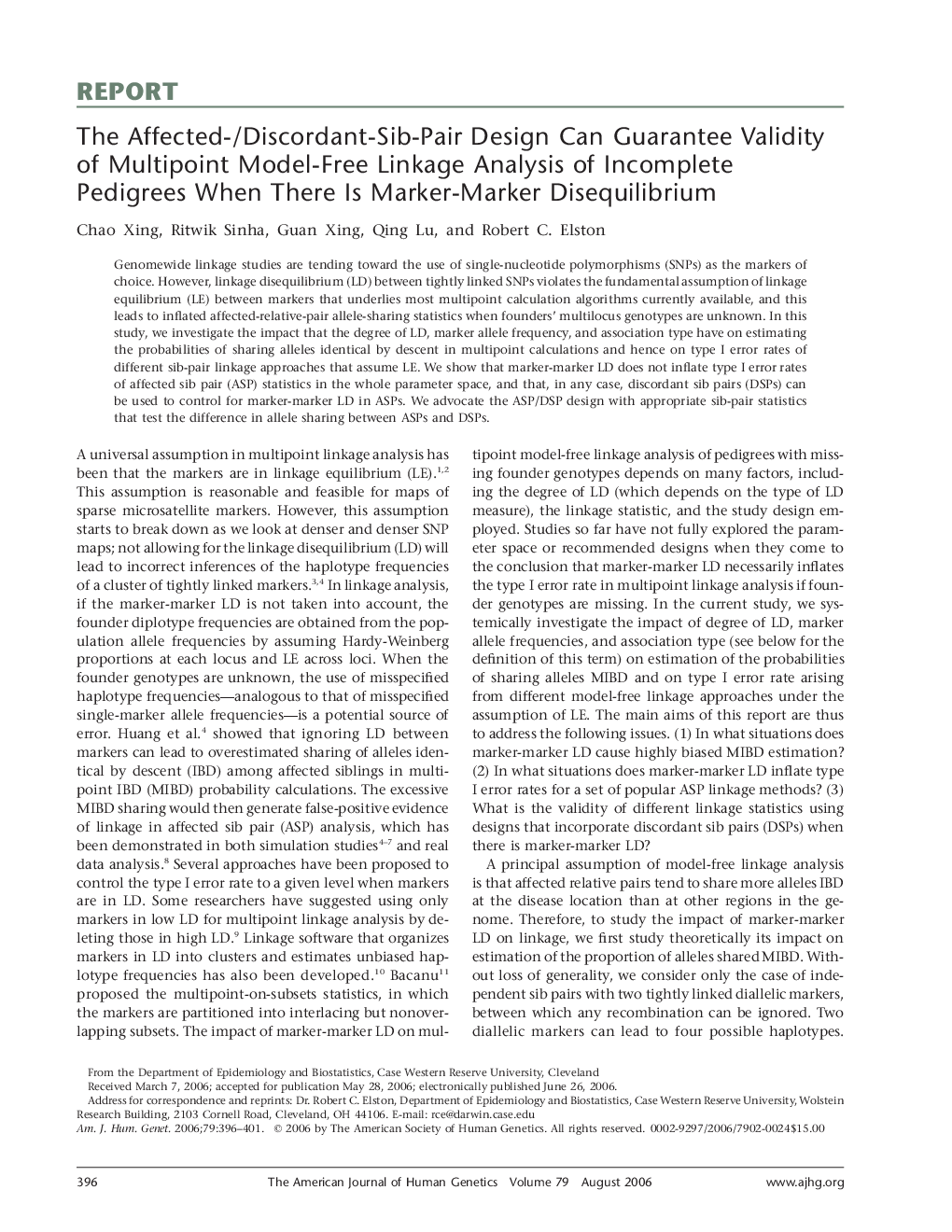| Article ID | Journal | Published Year | Pages | File Type |
|---|---|---|---|---|
| 2812256 | The American Journal of Human Genetics | 2006 | 6 Pages |
Genomewide linkage studies are tending toward the use of single-nucleotide polymorphisms (SNPs) as the markers of choice. However, linkage disequilibrium (LD) between tightly linked SNPs violates the fundamental assumption of linkage equilibrium (LE) between markers that underlies most multipoint calculation algorithms currently available, and this leads to inflated affected-relative-pair allele-sharing statistics when founders’ multilocus genotypes are unknown. In this study, we investigate the impact that the degree of LD, marker allele frequency, and association type have on estimating the probabilities of sharing alleles identical by descent in multipoint calculations and hence on type I error rates of different sib-pair linkage approaches that assume LE. We show that marker-marker LD does not inflate type I error rates of affected sib pair (ASP) statistics in the whole parameter space, and that, in any case, discordant sib pairs (DSPs) can be used to control for marker-marker LD in ASPs. We advocate the ASP/DSP design with appropriate sib-pair statistics that test the difference in allele sharing between ASPs and DSPs.
